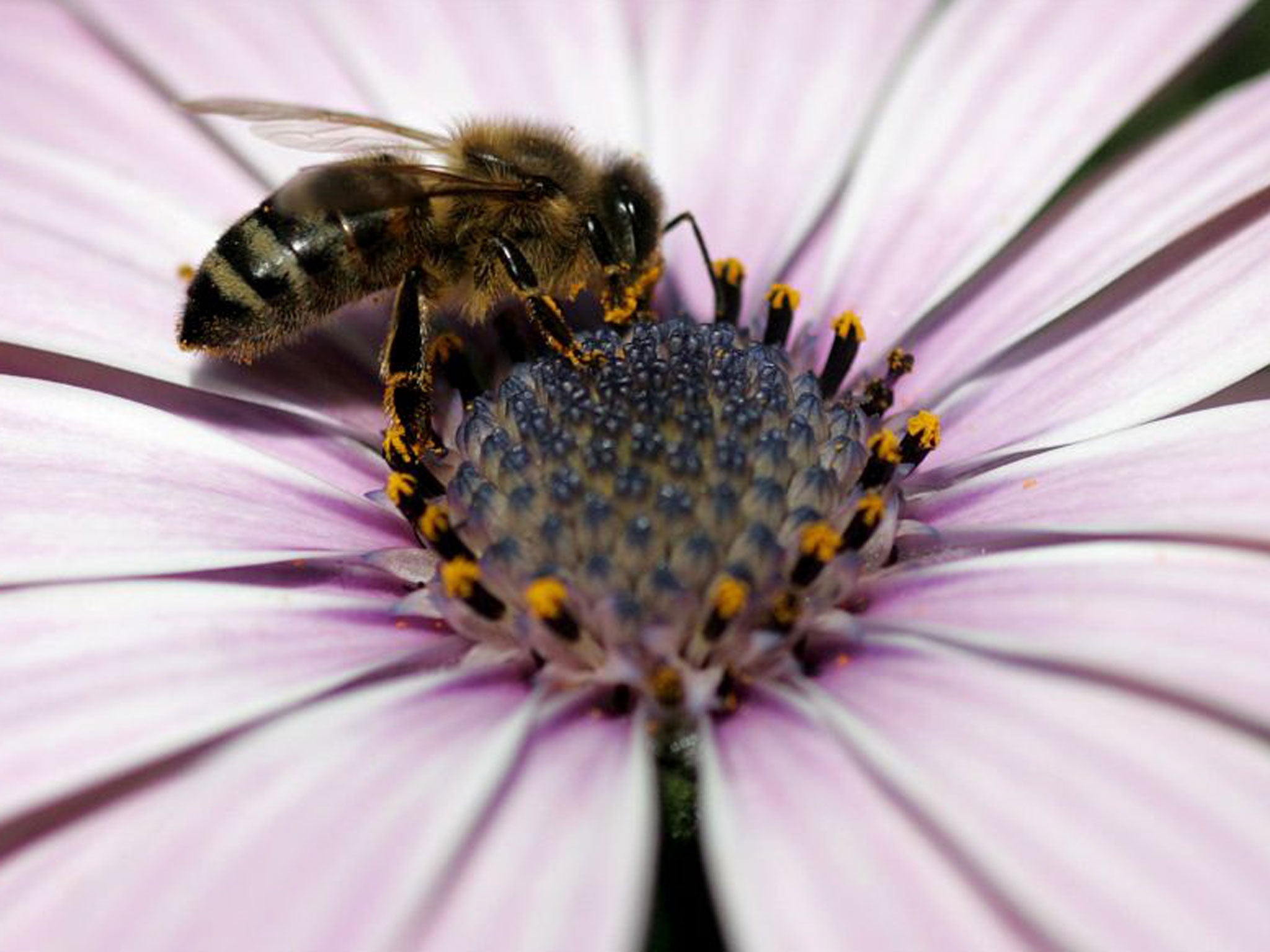Historic vote to ban neonicotinoid pesticides blamed for huge decline in bees

Your support helps us to tell the story
From reproductive rights to climate change to Big Tech, The Independent is on the ground when the story is developing. Whether it's investigating the financials of Elon Musk's pro-Trump PAC or producing our latest documentary, 'The A Word', which shines a light on the American women fighting for reproductive rights, we know how important it is to parse out the facts from the messaging.
At such a critical moment in US history, we need reporters on the ground. Your donation allows us to keep sending journalists to speak to both sides of the story.
The Independent is trusted by Americans across the entire political spectrum. And unlike many other quality news outlets, we choose not to lock Americans out of our reporting and analysis with paywalls. We believe quality journalism should be available to everyone, paid for by those who can afford it.
Your support makes all the difference.A landmark step in the campaign to ban a nerve-agent pesticide blamed for causing mass die-offs in bees could be reached on Monday following one of the most intensive environmental lobbying battles of recent years.
Months of furious argument which has pitched green groups, the chemical industry, farmers, scientists and politicians at bitter odds with each other will be decided in a crucial EU vote in Brussels.
Britain’s Environment Secretary, Owen Paterson, has been criticised for failing to support a ban on three types of neonicotinoid pesticides which have been linked to a dramatic decline in the bee population.
Mr Paterson, who is backed by the Government’s new chief scientific adviser, the National Farmers’ Union, as well as some beekeepers, insists that there is insufficient evidence to support the two-year moratorium.
It is claimed that outlawing the chemical would result in a £650m rise in the annual costs of UK food production and lead to an even greater impact on wildlife through the use of older, more hazardous, chemicals to spray crops.
Last week, designers Katharine Hamnett and Vivienne Westwood handed a petition with 300,000 signatures to Downing Street demanding the Government support the initiative.
They are backed by Friends of the Earth and the campaign group Avaaz, which has 2.6 million signatories on its online petition calling for the ban.
But Mr Paterson, who has claimed he is the victim of a “cyber-attack” from opponents, is reported to have written to chemicals company Syngenta, manufacturer of one of the neonicotinoids, to say he was “extremely disappointed” by the European Commission’s proposed ban.
Last month, to the dismay of environmentalists, a vote by EU officials on outlawing the pesticide ended in deadlock having failed to reach the necessary qualified majority. It is believed that only Bulgaria has changed its position and is now expected to vote in favour of the moratorium. Britain was one of five countries to abstain.
Under EU rules the present arithmetic means that the Commission – which proposed the ban following a report from the European Food Safety Authority – might step in to make it a reality.
Opponents of the moratorium reject the evidence of more than 30 scientific studies in the last three years showing the harmful impact of neonicotinoids on bees, insisting that the link has not been established outside of the laboratory.
The chemicals attack insects’ nervous systems and are active in all aspects of a plant, meaning they are present in the pollen and nectar gathered by bees. A spokeswoman for the Department for Environment, Food and Rural Affairs said: “As the proposal currently stands we could not support an outright ban. We have always been clear that a healthy bee population is our top priority, that’s why decisions need to be taken using the best possible scientific evidence and we want to work with the commission to achieve this.
Join our commenting forum
Join thought-provoking conversations, follow other Independent readers and see their replies
Comments